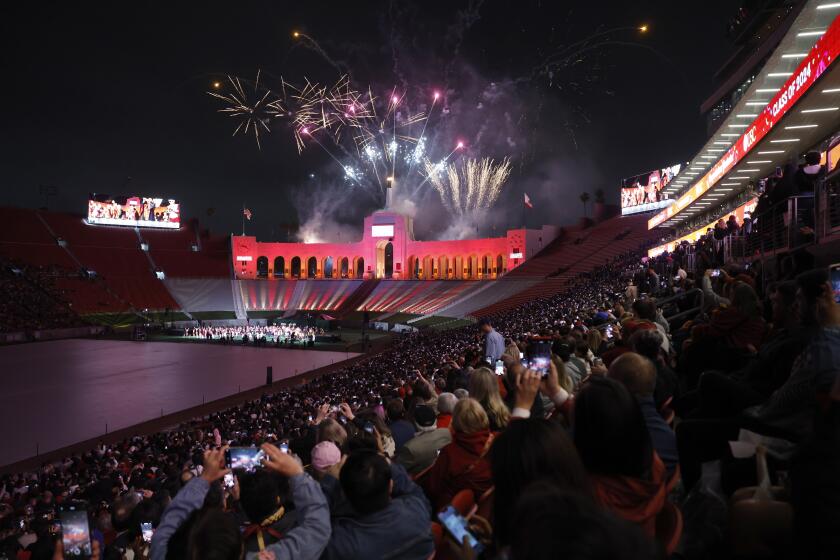A Proposition for Improving Education : Why the Gas Tax Measure Would Also Rev Up State’s University System
Picture the pinata hanging high at a small children’s party. Whack. A few candies trickle out and a child grabs them. Whack. About a dozen spill out now, and two or three children scoop them up. In the meantime, 20 neighborhood children, seeing the fun, join the party. Double whack. The pinata bursts open. The candies cascade out, scatter and are snapped up by the children who are fast and can elbow their way in. Now there’s not enough candy to go around. The smaller children, the slower ones, the timid ones, get left out.
In a game, that’s OK, because a benevolent adult would step in and make sure that all the children received some sort of prize. But think of that pinata as the state budget. The children represent state-funded services--like higher education--that compete for tax dollars. The candy is money. It’s an analogy, courtesy of Lindsay Conner, president of the Los Angeles Community College District Board of Trustees, that applies to the current state budget process. Proposition 111 would ensure, in effect, that as more children come to the party, there will be enough public money for all--that as California’s needs grow, its budget process will keep pace.
The principal discussion about Proposition 111, the state gas-tax initiative, has naturally focused on the billions it would provide to improve the state’s transportation system.
But Proposition 111 would do more than loosen the traffic knot. It would remove the severe restraints on state spending that have diminished the quality and amount of public services state residents deserve.
Schools and community colleges already are guaranteed a certain portion of the budget due to voter passage of Proposition 98. But the combined effect of the Gann-mandated spending limit and the more recent Proposition 98 has meant that elementary, secondary and community college education receives an increasing share of the budget, while public universities, not to mention such things as senior citizen services, law enforcement, public hospitals, mental health clinics--go begging.
Proposition 111 would still preserve steady funding for schools and community colleges, but not at the expense of other crucial state-funded services, like higher education. Some 700,000 children are expected to grow up and want to attend college in California by 2005.
Will the state be able to accommodate their educational needs, or will they wind up like the left-outs at the pinata party? Proposition 111 is more than just a gas-tax measure. It deserves support June 5.
More to Read
Start your day right
Sign up for Essential California for news, features and recommendations from the L.A. Times and beyond in your inbox six days a week.
You may occasionally receive promotional content from the Los Angeles Times.






